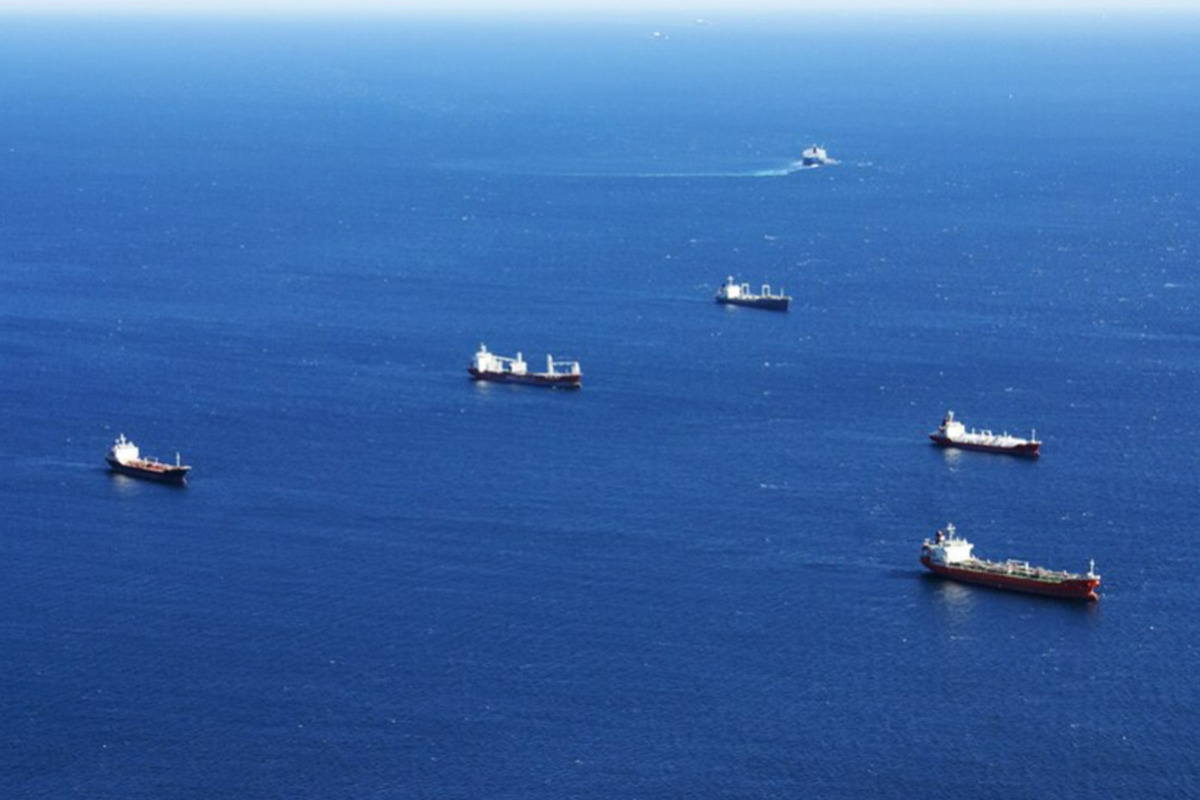The Russian “shadow fleet” did not fall under Houthi missiles: it will bring a stable income
[ad_1]

Experts believe that they only shoot at ships of Israel, the USA and Great Britain
The “shadow” oil fleet, created by Russia to circumvent Western sanctions, continues to remain afloat even despite the actions of the Houthis, who, with their attacks on sea vessels, are disrupting international cargo transportation in the Red Sea. According to Reuters, tankers transporting “black gold” from our country through the Suez Canal are exposed to less risks than ships whose owners are associated with the USA, Israel and the UK. According to international transport operators, the number of Russian ships passing along this transit route has increased by 20%.
Shipping through the Red Sea, which serves as a major hub for cargo from Asian producers to European consumers (and vice versa), has faced widespread disruption in recent months. Due to attacks by the Yemeni Houthis, supplies of diesel fuel and jet fuel from Asia and the Middle East to Europe have dropped to almost zero.
Great Britain suffered the greatest damage among the states of the Old World. According to analysts from S&P Global, every eighth manufacturer of British goods has suffered from the suspension of shipping through the Suez Canal. Approximately the same negative indicators are complained about in Greece, France and Germany, where large seaports are located that provide transportation for large-scale transoceanic export-import traffic. At the same time, the number of Russian ships passing through the Suez Canal, although reduced, still exceeds the average traffic of 2023 by almost 20%.
The “national” connotation of the Red Sea transport crisis does not seem surprising. According to international oil trader Adi Imsirovich, Russia was helped in maintaining export traffic by the so-called “shadow fleet”, transporting fuel subject to G7 sanctions, the cost of which exceeds the $60 limits set by the West. Sales of “black gold” to China and India bring domestic suppliers at least $70 per barrel, which gives hope for an increase in the country’s raw material income in the near future. According to the Ministry of Finance, in 2024, Russia’s oil and gas earnings will increase by a third, to 11.5 trillion rubles, which will bring them closer to the values of 2021, when Western restrictive measures against Russia’s export revenues were not yet in effect.
Judging by the comments of Adi Imsirovich, Russia not only bravely endured, but also successfully took advantage of Western sanctions. Just a year and a half ago, the Russian tanker fleet consisted of only 140 ships of various sizes and classes, which was clearly not enough to create a national system of maritime energy supplies. After the introduction of G7 energy restrictions, European politicians started talking about Russia’s acquisition of a “shadow fleet” of tankers for transporting oil, which our country allegedly bought up. CNN reported back in March last year that the fleet size was approximately 600 vessels. The shipments of raw materials exported by these ships end up in Europe, since restrictions on the import of Russian “black gold” do not prevent EU countries from maintaining their own industrial production at a profitable level at the expense of “toxic” Russian hydrocarbons.
Russia’s “shadow” tanker fleet can currently be called the most reliable channel for hydrocarbons. Vessels from this armada are leased by companies that have no connections with Western countries, which means they cannot be subject to sanctions-based repression. According to experts, tankers transporting Russian raw materials through the Red Sea, of course, should be wary of missile attacks from one side or another, but to a lesser extent than competing shipowners: as the Houthis have stated, they attack ships associated with Israel, the United States and Great Britain.
“The Houthis very selectively attack ships passing through the Red Sea,” says Artem Tuzov, director of the corporate finance department at IVA Partners. Since the ongoing actions so far look more like a political than an economic act of confrontation, problems with movement along transit lines in one way or another arise only for ships associated with Israel and the United States. Outside the Red Sea, transport routes do not face military aggression. A complete stop of supplies through the Suez Canal threatens to increase logistics costs by 20%. Russian mining holdings will have to accept losses, but the “shadow fleet”, which continues to transport under the flags of Liberia and the UAE, will still bring a stable income, the expert believes.
“Despite significant energy reserves, European countries continue to fear a sharp rise in hydrocarbon prices. A decrease in supplies of “black gold” will lead to a fuel shortage on the continent’s market. In fact, Europeans will have to repurchase raw materials supplied not through the Suez Canal, but along a longer route – bypassing Africa through the Cape of Good Hope,” says Alexander Shneiderman, head of the sales and customer support department at Alfa-Forex. There is a possibility that in the future the European Union will begin to turn a blind eye to the Russian “shadow” tanker fleet, which will, bypassing sanctions, supply cheap energy resources to consumers in the Old World.
[ad_2]
Source link






